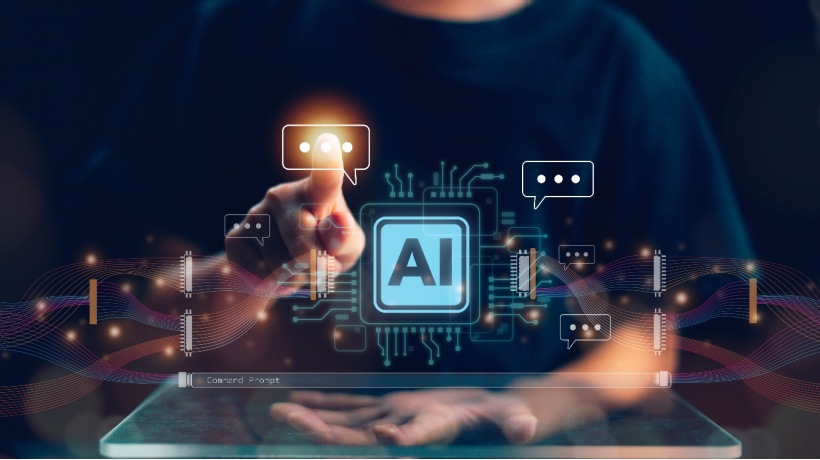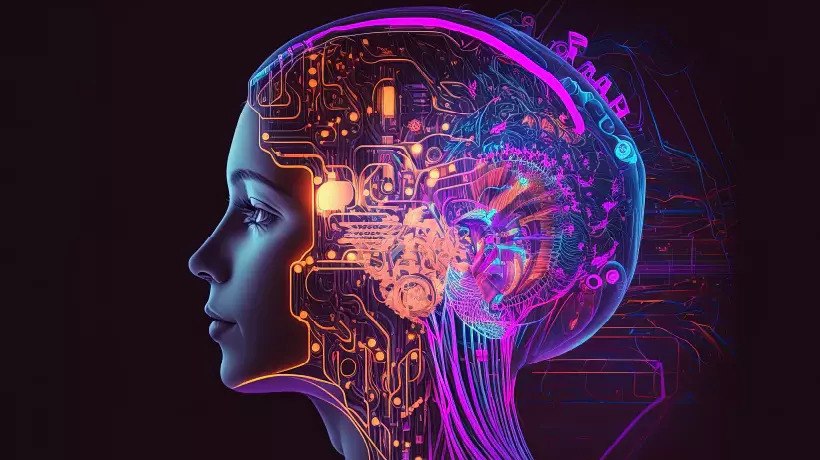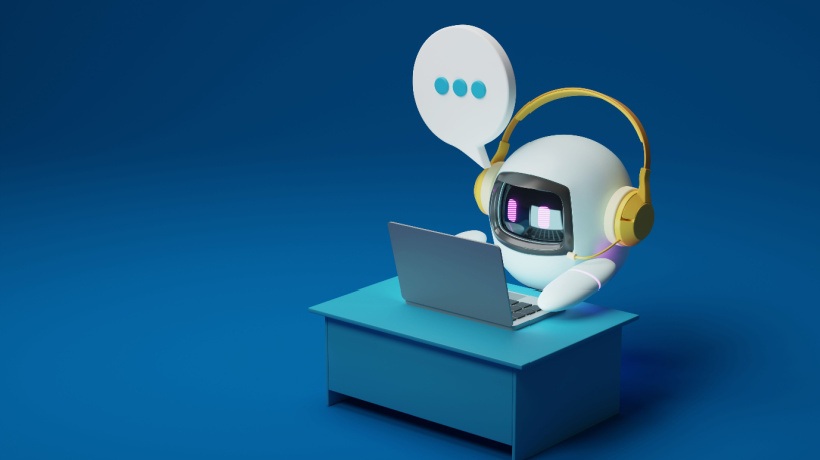ChatGPT-4: The Answer Or The Problem?
The world of customer service is about to change forever as Artificial Intelligence (AI) takes center stage. And leading the charge is ChatGPT-4, an innovative language model trained by OpenAI. But, while many are excited about the potential benefits, only some are sold on the idea of interacting with a machine. So what does this mean for traditional customer service representatives? Can ChatGPT replace them? And what are the consequences of fully embracing this new technology? Join us as we explore the thrilling possibilities and potential pitfalls of incorporating ChatGPT-4 into your customer service strategy.
Full-Scale Adoption?
ChatGPT-4 may be a supersmart chatbot, but it can’t replace the human touch when it comes to complex or emotional customer issues. That’s why finding the perfect balance between man and machine is crucial for successful customer service. By taking on routine inquiries, ChatGPT-4 frees up human reps for the big stuff, leading to increased efficiency and cost savings. It’s estimated that ChatGPT-4 can handle up to 80% of these types of inquiries, so it’s a powerful tool in the customer service arsenal.
Chat GPT-4: A New Era In AI Customer Service
At the beginning of 2022, only 23% of chatbots were AI-powered, and just 31% planned to integrate AI in the future. However, ChatGPT-4 is a game-changing technology that can understand and respond to complex inquiries, adapt to different scenarios, and offer empathetic solutions to customers. It uses Machine Learning to continually improve its responses based on feedback, making it one of the most advanced and versatile AI language models available. Experts in the field have stated that with "its unparalleled ability to understand and respond to complex inquiries, ChatGPT-4 is set to revolutionize how we interact with technology and the world around us." As a result, many companies have already introduced ChatGPT for use in customer service and other applications.
Organizational Benefits Of ChatGPT-4
Disclaimer: As ChatGPT-4 is incredibly new, there are few, if any, studies directly testing it. Therefore the studies cited below test other older versions of ChatGPT and other AI.
Efficiency, Availability, And Savings
AI/ChatGPT can handle a large volume of customer queries simultaneously without requiring breaks, rest, or shift changes. AI chatbots can answer up to 80% of routine customer inquiries, with PwC finding that AI-powered chatbots were able to resolve customer inquiries up to four times faster than traditional customer service methods. Given the advances of Chat GPT-4, the efficiency will be exponentially growing alongside the technology. Moreover, ChatGPT-4 can provide customers with 24/7 availability, quick response times, and personalized interactions improving customer experience. Salesforce found that 64% of customers expect companies to respond in real-time, and 84% say being treated like a person is very important to winning their business. Chat GPT-4 can achieve this better than previous versions without increasing costs.
Clearly, incorporating AI/ChatGPT can reduce the cost of customer service operations by automating repetitive tasks without requiring breaks, holidays, or sick days. Juniper Research found that businesses can save up to $11 billion annually by implementing chatbots. Moreover, Accenture found in 2018 that AI-powered customer service systems could reduce customer service costs by up to 25%. With the advances of ChatGPT, this could increase tenfold.
Data Collection And Analysis
ChatGPT-4 can collect and analyze customer data, providing businesses with valuable insights into customer behavior, preferences, and pain points. AI-powered chatbots can analyze customers’ past purchases and browsing behavior to provide personalized product recommendations, making the customer feel understood and valued, increasing sales and customer loyalty. Ninety-one percent of consumers are more likely to shop with brands that provide personalized offers and recommendations. It’s unsurprising then that 79% of executives agree that AI will help improve customer experience, and 75% believe it will increase customer satisfaction.
ChatGPT-4 has a range of other benefits, including multilingual support and the ability to improve customer service continuously.
Disadvantages Of ChatGPT-4
Lack Of Empathy
ChatGPT-4, as an AI system, does not have emotions or the ability to truly empathize with customers. Its programming and the data it has been trained on limit its ability to express empathy. While the tool can generate responses that sound empathetic, it may not always understand the full context of the customer’s situation. Empathy is especially important nowadays as much evidence suggests that consumers are far shorter-tempered than usual. Jo Causon, alongside the government, recently introduced new legislation to criminalize being physically, cognitively, and emotively aggressive toward staff in response to the dramatic rise in incidents since the pandemic. Martin Hill-Wilson attributes this to the heightened state of vulnerability many humans are experiencing right now. Therefore, the ability of customer service staff to reframe a customer’s experience is critical to brand loyalty.
However, in 2019 PwC found that only 38% of UK consumers felt that the customer service representatives understood their needs well. Last year, customer service complaints were the highest on record, costing British businesses more than £9 billion a month. It appears as though the majority of customer service representatives are not effectively empathizing and reframing customers’ experiences in the way they need to be. Just because humans can feel emotion does not mean they are emotionally intelligent. Many require training, just like ChatGPT. It’s important to compare ChatGPT-4’s weakness in empathy to the average customer service experience rather than the best or what is possible.
Do People Want ChatGPT-4?
If people don’t want to interact with ChatGPT-4 over a human, then its ability to improve customer service is inherently limited. Masters in Minds conducted a LinkedIn poll finding that just 4.85% of people would prefer to speak to ChatGPT-4 over a human. This is further supported by Forrester, who found that 43% of customers prefer to speak to a human representative for complex inquiries. PwC revealed that 59% of customers felt that the use of chatbots and AI meant companies had lost touch with the human element of customer experience.
Interestingly, within the Masters in Minds poll, a follow-up question was asked regarding how much people had actually used ChatGPT-4, with 37.1% stating they hadn’t used it once. This perhaps indicates that customers have a closed mindset about the technology, with many potentially underestimating the technologies abilities or choosing not to use it due to ethical concerns and a lack of regulation.
Technical Issues
Although ChatGPT-4 has advanced natural language processing capabilities, technical issues such as connectivity problems or system failures could disrupt the customer service experience. Accenture found that 49% of customers who used chatbots had experienced technical problems leading to dissatisfaction and frustration. Although the advancements made by ChatGPT-4 should reduce misunderstandings, it cannot overcome all technical issues, especially ones out of its control, for example, Wi-Fi connection. Therefore, whilst ChatGPT-4 can potentially improve customer service interactions, it’s important to account for technical issues that could still arise and impact User Experience.
Need For Constant Monitoring
These technical issues must be monitored, and systems require maintenance to ensure proper function and accurate responses. Moreover, as the system learns and adapts to new information, there is potential for biases to be introduced into the system. For example, if the system is trained on a dataset that contains biases, those biases may be reinforced and amplified. The requirement for human oversight slightly reduces the cost-saving benefits. Also, organizations should take into account that the UK is currently undergoing a significant digital skills gap, so finding qualified people may be challenging and expensive.
Job Loss
Incorporating ChatGPT into customer service may lead to job loss and negative publicity for the company. Nadia Finer stated, "If you replace your human staff with chatbots, you risk alienating customers who value a personal touch and care about supporting companies that provide jobs." Some estimates suggest that up to 85% of customer interactions could be handed to AI-powered chatbots leading to a significant reduction in jobs.
Whilst ChatGPT-4, if introduced, would, of course, create new jobs in other areas, such as data analysis and system maintenance, it’s unlikely this would benefit those losing their jobs. It is, therefore, crucial to businesses and policymakers alike to consider the impact on jobs before implementation to ensure workers are prepared for changes that may arise. Given the significant cost reduction that’s likely to take place, some of the money saved could be put towards upskilling customer service reps to work with the AI, rather than opting for redundancy.
Conclusion
ChatGPT-4 offers exciting possibilities for personalized customer service but requires a balance between automation and human touch to be successful. Finding this balance can lead to increased efficiency and customer satisfaction. At the end of the day, as Jeffery Gitomer said, "They (customers) are never an interruption in our work, but the purpose of it," and if they are not on board with ChatGPT-4, this inherently limits the technology's ability to improve customer service.
Further Reading








